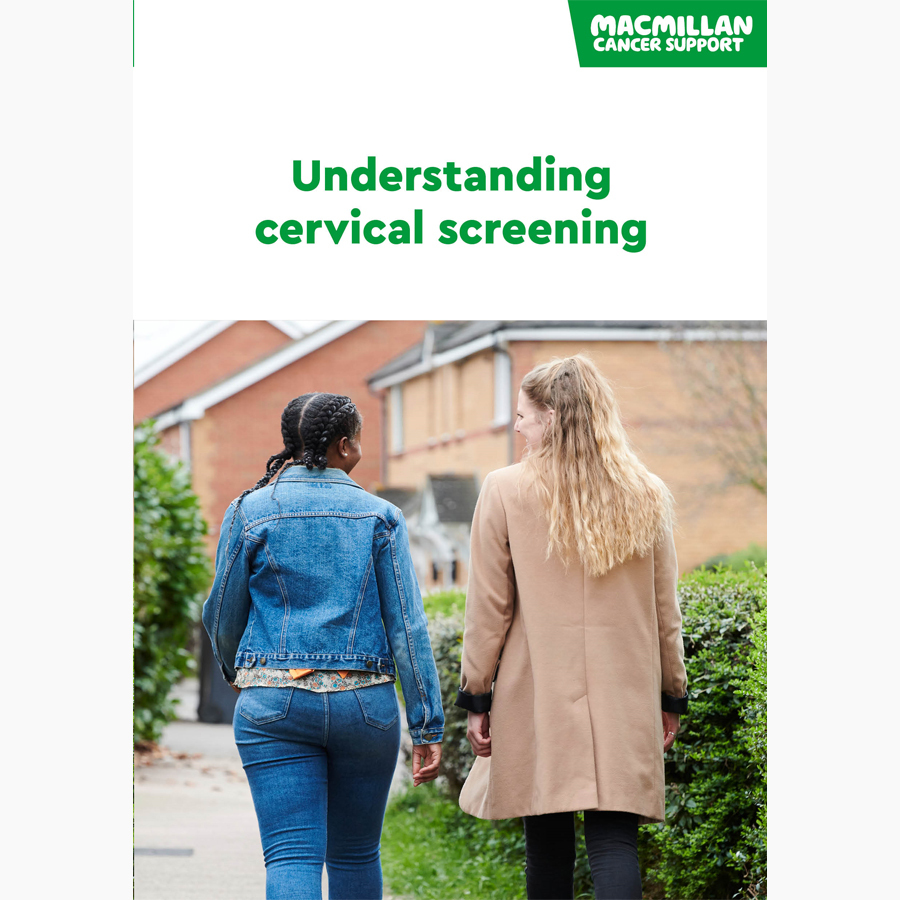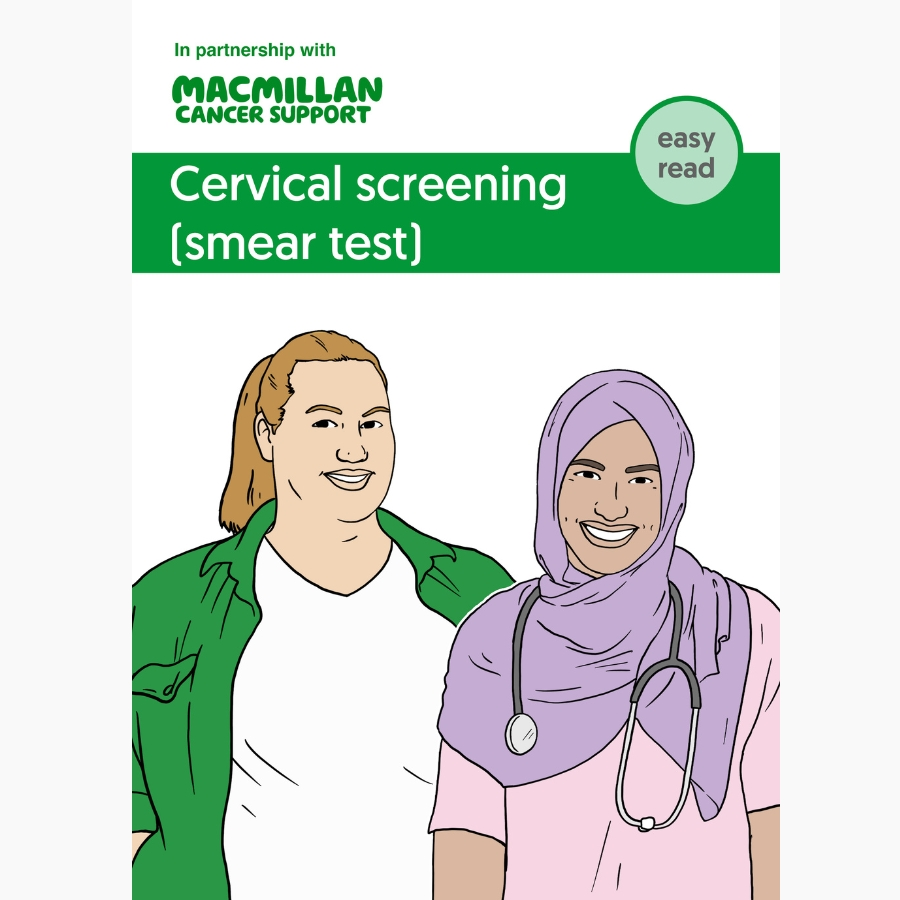
Cervical Screening Awareness Week
We've answered some frequently asked questions about cervical screening. With nearly 1 in 3 not attending their cervical screening test we also want to share where to find information and support if you’re worried about cervical screening or your screening results.
Nearly 1 in 3 don't attend their cervical screening test
Frequently asked questions about cervical screening
Do you have questions or concerns about cervical screening? We answer some of the most commonly asked questions about cervical screening below.
-
How painful is a cervical screening (smear) test? Does it hurt?A cervical smear test should not hurt, but sometimes it can feel uncomfortable. If you're worried about the test causing you pain, your GP or practice nurse can explain ways they can make the test easier for you.
-
What is a cervical screening (smear) test looking for?
A cervical screening test checks for abnormal cell changes in the cervix. Cervical cell changes are common, and often improve naturally. But sometimes these changes need treatment because there is a risk they may develop into cancer.
In England, Scotland and Wales, the sample is tested for a virus called HPV first. Samples that show high-risk HPV are then checked under a microscope for abnormal cells.
In Northern Ireland, the sample of cells are now also first tested for HPV.The aim of cervical screening is to check for certain types of HPV and any abnormal cell changes early that might develop into cervical cancer if left untreated.
-
Is cervical screening necessary?
Abnormal cell changes in the cervix cause no symptoms. You will not know if you have them unless you have cervical screening. Screening finds abnormal cell changes, including the ones that are most likely to become cancer. These cells can then be treated. This is an effective way of preventing cervical cancer.
Cervical screening is important to have, even if you have had the HPV vaccination. The vaccination protects against the most common types of high-risk HPV that cause cervical cancers. But it does not protect against all types. -
How often is cervical screening?
If you have a cervix and you’re between the ages of 25 and 64, you should be offered a regular cervical smear test.
If you are registered as female with a GP the NHS will contact you when it is time for your test. If you are registered as male and have a cervix, you may not be sent an invitation. Tell your GP if you want to have cervical screening, so they can arrange regular tests for you.
You can find out more from:- Cervical screening in England (NHS.UK)
- Cervical screening in Scotland (NHS Inform)
- Cervical screening in Wales (Public Health Wales)
- Cervical screening in Northern Ireland (nidirect)
You do not need screening if you have had surgery to remove your cervix. If you have any questions about your cervical screening invites, you could also talk to your GP, practice nurse or local sexual health service.
-
What is the difference between a smear test and cervical screening?
Cervical screening, used to be called smear test. It was called that because of the way the test used to be done – cells were smeared on a glass slide, which was sent to the laboratory for testing.
It is now usually referred to as cervical screening test as the test looks for HPV first which can detect the risk of developing cervical cancer earlier. Samples that show HPV are then checked under a microscope for abnormal cells.
If abnormal cells are found, you have another test called a colposcopy. A colposcopy looks more closely at the cervix. It can show is treatment is needed to remove the abnormal cells to prevent cervical cancer developing.
-
How do you prepare for a cervical screening test?
You do not need to prepare in any way for a cervical screening test. You may find it helpful to wear loose and comfortable clothing that you can remove easily.
You will usually be given information before your test about preparing for a smear test. This may include:- Planning your appointment for a day you do not have a period.
- Avoiding vaginal medications, lubricants and creams for 2 days before the test.
If you are worried about an upcoming cervical screening test, it may help to talk to someone about your concerns. This could be a friend or relative, or healthcare professional. Your GP or practice nurse can answer any questions you have.
-
Should I have a cervical screening test if I'm LGBTQ+?
Cervical screening is for anyone who has a cervix, regardless of sexual orientation or gender identity.
The main risk factor for cervical cancer is the human papilloma virus (HPV). HPV can affect all sexual orientations and anyone who has ever been sexually active. If you are lesbian or bisexual you are still at risk and should have screening.
If you are a trans man or non-binary person and have a cervix, you should have screening too. But, you may not be sent an invitation if you are registered as male with your GP. Tell your GP if you want to have cervical screening, so they can arrange regular tests for you.
You do not need cervical screening if you are a trans woman or were assigned male at birth.
Cervical screening resources
If you need a colposcopy
In the video below, Joyce, Nurse Colposcopist, and Kacy talk about cervical screening and why a colposcopy may be needed. They explain what will happen during the procedure and what to expect on the day. We have more information about having a colposcopy.
What you can do if you are worried about cervical screening

Share your feelings

Read some tips

Get support from Macmillan
How you can help during Cervical Screening Awareness Week


Encourage friends and family to attend their cervical screening appointments. Talk to them about their concerns if they are worried.

Whether you prefer an adrenaline rush or a caffeine rush we've got an event to suit you.




